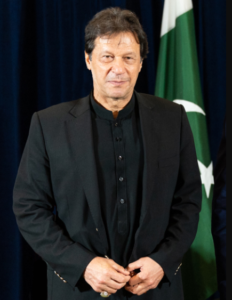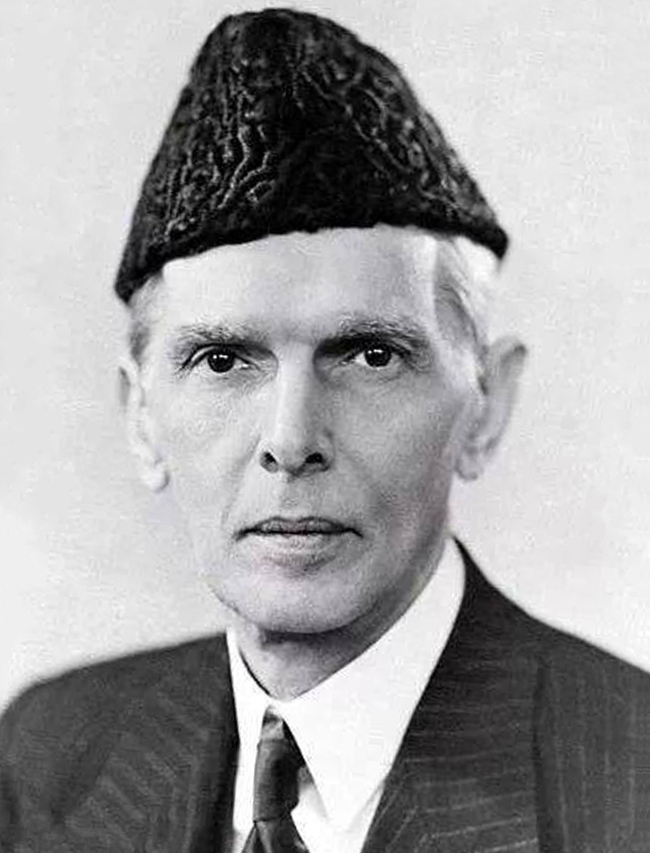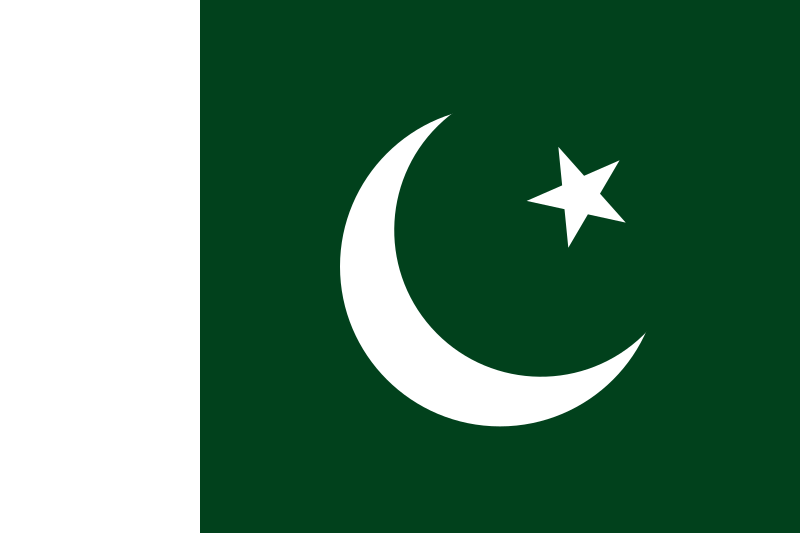 IT admins can now force a feature upgrade onto a Windows 10 machine even in the face of a Microsoft attempt to block the system from receiving the refresh.
IT admins can now force a feature upgrade onto a Windows 10 machine even in the face of a Microsoft attempt to block the system from receiving the refresh.
Imran Khan
Imran Ahmed Khan Niazi HI PP (Urdu: عمران احمد خان نیازی; born 5 October 1952) is the 22nd[n 1] and current Prime Minister of Pakistan and the chairman of the Pakistan Tehreek-e-Insaf (PTI). Before entering politics, Khan was an international cricketer and captain of the Pakistan national cricket team, which he led to victory in the 1992 Cricket World Cup.
Khan was born to a Pashtun family in Lahore in 1952,[14] and graduated from Keble College, Oxford in 1975. He began his international cricket career at age 18, in a 1971 Test series against England.[14] Khan played until 1992, served as the team’s captain intermittently between 1982 and 1992,[15] and won the Cricket World Cup, in what is Pakistan’s first and only victory in the competition.[16] Considered one of Pakistan’s greatest ever all-rounders, Khan registered 3,807 runs and took 362 wickets in Test cricket[17] and was inducted into the ICC Cricket Hall of Fame.[15]
In 1991, he launched a fundraising campaign to set up a cancer hospital in memory of his mother. He raised $25 million to set up a hospital in Lahore in 1994, and set up a second hospital in Peshawar in 2015.[18] Khan then continued his philanthropic efforts, expanding the Shaukat Khanum Memorial Cancer Hospital to also include a research centre, and founded Namal College in 2008.[19][20] Khan also served as the chancellor of the University of Bradford between 2005 and 2014, and was the recipient of an honorary fellowship by the Royal College of Physicians in 2012.[21][22]
Khan founded the Pakistan Tehreek-e-Insaf (PTI) in 1996, and serves as the party’s chairman.[23] By winning a seat in the National Assembly in 2002, he served as an opposition member from Mianwali until 2007. PTI boycotted the 2008 general election. In the subsequent election PTI became the second-largest party by popular vote.[24][25] In regional politics, PTI led a coalition government in Khyber Pakhtunkhwa from 2013,[26] with Khan delegating this leadership to Mahmood Khan after being elected as Prime Minister in 2018.[27]
As Prime Minister, Khan addressed a balance of payments crisis with a bailout from the International Monetary Fund.[28] He also presided over a shrinking current account deficit[29][30] and limited military spending to curtail the fiscal deficit.[31][32] Khan launched an anti-corruption campaign, but was criticised by political opponents for alleged targeting.[33] In other domestic policy, Khan pushed for an increase in renewable energy production[34] with an aim to make Pakistan mostly renewable by 2030.[35] He also initiated reforestation[36] and expansion of national parks.[37] He enacted policy which increased tax collection[38][39] and investment.[40] Khan’s government also instituted reforms to education[41] and healthcare[42][43] on a national and regional level respectively. In foreign policy, he dealt with border skirmishes against India, supported the Afghan peace process,[44] strengthened relations with China and the United States[45] and improved Pakistan’s reputation abroad.[46]
Muhammad Ali Jinnah
Muhammad Ali Jinnah (born Mahomedali Jinnahbhai; 25 December 1876 – 11 September 1948) was a barrister, politician and the founder of Pakistan.[2] Jinnah served as the leader of the All-India Muslim League from 1913 until Pakistan’s independence on 14 August 1947, and then as Pakistan’s first Governor-General until his death. He is revered in Pakistan as Quaid-i-Azam (“Great Leader”) and Baba-i-Qaum, (“Father of the Nation“). His birthday is a national holiday in Pakistan.
Born at Wazir Mansion in Karachi, Jinnah was trained as a barrister at Lincoln’s Inn in London. Upon his return to British India, he enrolled at the Bombay High Court, and took an interest in national politics, which eventually replaced his legal practice. Jinnah rose to prominence in the Indian National Congress in the first two decades of the 20th century. In these early years of his political career, Jinnah advocated Hindu–Muslim unity, helping to shape the 1916 Lucknow Pact between the Congress and the All-India Muslim League, in which Jinnah had also become prominent. Jinnah became a key leader in the All India Home Rule League, and proposed a fourteen-point constitutional reform plan to safeguard the political rights of Muslims. In 1920, however, Jinnah resigned from the Congress when it agreed to follow a campaign of satyagraha, which he regarded as political anarchy.
By 1940, Jinnah had come to believe that Muslims of the Indian subcontinent should have their own state to avoid the possible marginalised status they may gain in a Hindu-Muslim state. In that year, the Muslim League, led by Jinnah, passed the Lahore Resolution, demanding a separate nation. During the Second World War, the League gained strength while leaders of the Congress were imprisoned, and in the elections held shortly after the war, it won most of the seats reserved for Muslims. Ultimately, the Congress and the Muslim League could not reach a power-sharing formula for the subcontinent to be united as a single state, leading all parties to agree to the independence of a predominantly Hindu India, and for a Muslim-majority state of Pakistan.
As the first Governor-General of Pakistan, Jinnah worked to establish the new nation’s government and policies, and to aid the millions of Muslim migrants who had emigrated from the new nation of India to Pakistan after independence, personally supervising the establishment of refugee camps. Jinnah died at age 71 in September 1948, just over a year after Pakistan gained independence from the United Kingdom. He left a deep and respected legacy in Pakistan. Innumerable streets, roads and localities in the world are named after Jinnah. Several universities and public buildings in Pakistan bear Jinnah’s name. According to his biographer, Stanley Wolpert, he remains Pakistan’s greatest leader.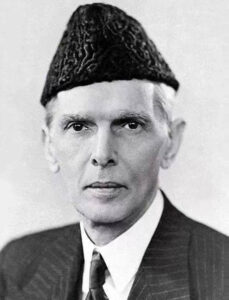
Pakistan Zindabad
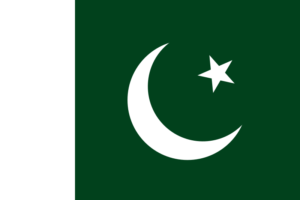 Pakistan Zindabad (Urdu: پاکستان زِنده باد — Pākistān Zindah bād, Urdu pronunciation: [ˌpaːkɪsˈt̪aːn ˈzɪnˌd̪aːˈbaːd̪]; lit. ‘Long Live the Pure Land‘ meaning, “Victory to Pakistan” is a slogan used by Pakistanis as an expression of victory or patriotism, often used in political speeches.[1][2] Its use started even before the creation of Pakistan, during the later phase of the Pakistan Movement.[3] The slogan became a battle cry and greeting for the Muslim League, which was struggling for an independent country for the Muslims of South Asia, when World War II ended and the independence movement geared up.[4] During the partition the slogan was shouted when trains transporting Muslims entered Pakistan.[5] Pakistan Zindabad is the national slogan of Pakistan.
Pakistan Zindabad (Urdu: پاکستان زِنده باد — Pākistān Zindah bād, Urdu pronunciation: [ˌpaːkɪsˈt̪aːn ˈzɪnˌd̪aːˈbaːd̪]; lit. ‘Long Live the Pure Land‘ meaning, “Victory to Pakistan” is a slogan used by Pakistanis as an expression of victory or patriotism, often used in political speeches.[1][2] Its use started even before the creation of Pakistan, during the later phase of the Pakistan Movement.[3] The slogan became a battle cry and greeting for the Muslim League, which was struggling for an independent country for the Muslims of South Asia, when World War II ended and the independence movement geared up.[4] During the partition the slogan was shouted when trains transporting Muslims entered Pakistan.[5] Pakistan Zindabad is the national slogan of Pakistan.

